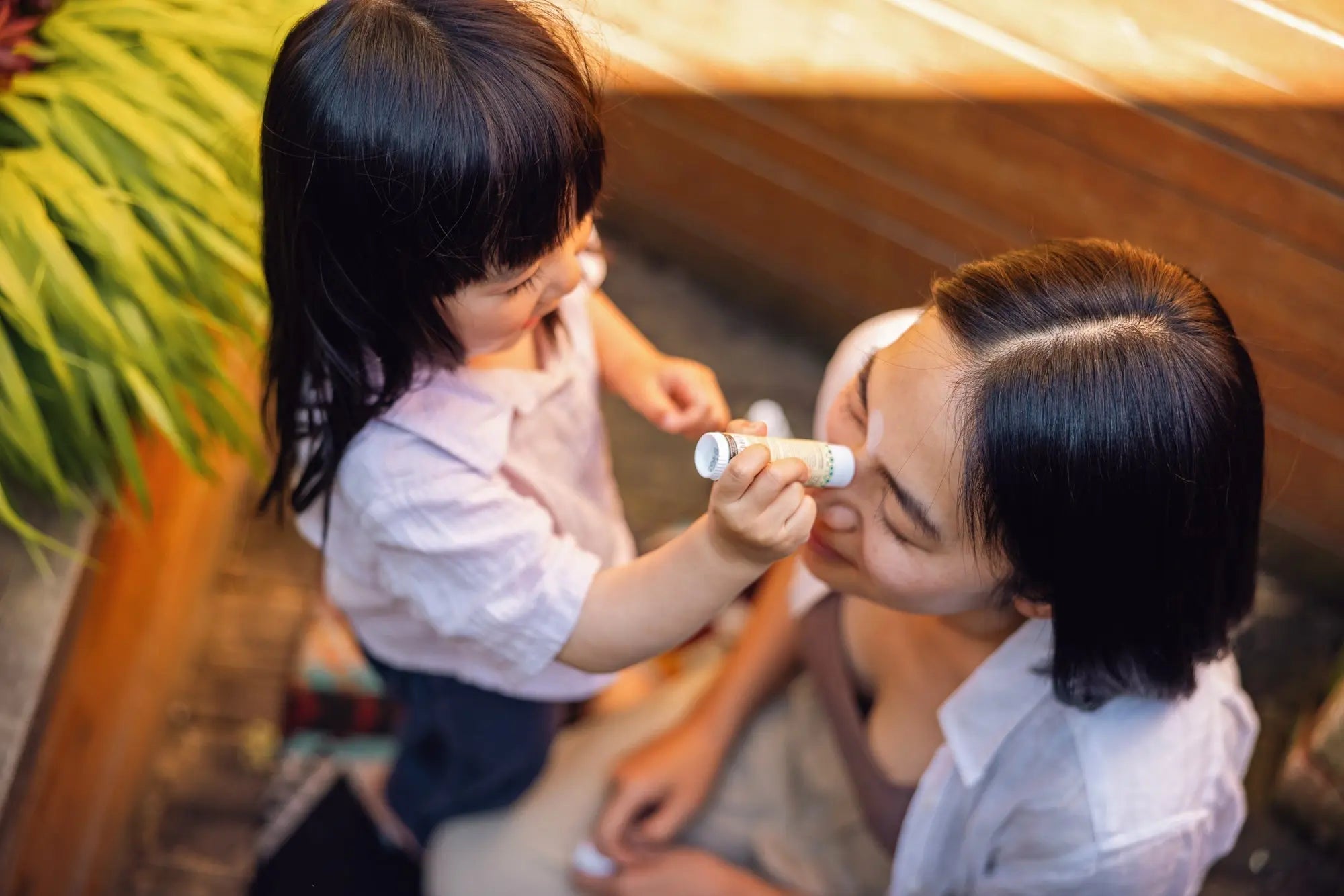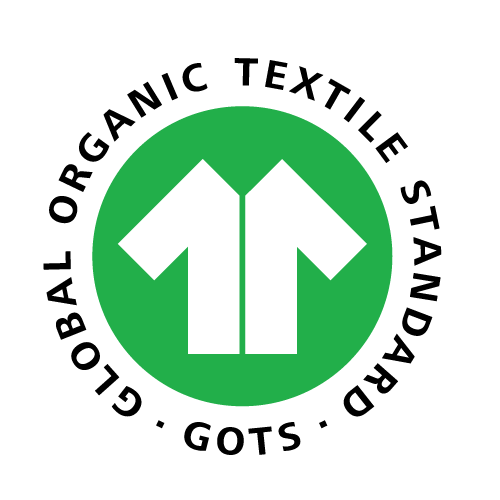When Denise Williams founded Matter Company in the late 1990s, she wasn’t aiming to start a skincare brand. Rooted in therapeutic herbalism and inspired by the forests of Ontario, she began crafting small-batch remedies for friends and family. One of her first creations? A pregnancy and baby care line made for a midwifery student—products that would lay the groundwork for what Matter is today.
In this conversation, Denise shares her perspective on natural suncare, why more people are making the switch, and what truly sets a good natural sunscreen apart—from both a health and environmental perspective.
How Matter Company Got Started
Matter Company began as a passion project. “I was studying therapeutic herbalism and wildcrafting, and started making products using ingredients inspired by the land around me,” says Denise. That knowledge led to formulas designed for sensitive skin, new moms, and babies—carefully developed and tested within her own community.
More than 20 years later, the brand continues to grow while staying true to its origins. “The traditions we started with are still the core of what we do,” she says.
Why People Are Turning Toward Natural Skincare

One big shift over the years? Consumers are more informed. “People understand that the skin is the body’s largest organ,” Denise explains. “There’s greater awareness around ingredients, environmental impact, and long-term health.”
For many, natural skincare isn’t just a preference—it’s a priority.
Introducing Natural Suncare: One of Canada's First
About 15 years ago, Matter Company added sunscreen to its lineup. “Our customers were asking for something safe to use on their babies,” Denise recalls. The need was clear—and the solution wasn’t widely available yet.
That led to the creation of one of Canada’s first truly natural sunscreens—mineral-based, gentle, and thoughtfully formulated with both safety and performance in mind.
Natural vs. Chemical Sunscreens: What’s the Difference?

The key difference lies in how the sunscreens work:
-
Natural (Mineral) Sunscreens use zinc oxide to physically block UVA and UVB rays. They sit on top of the skin, acting like a shield.
-
Chemical Sunscreens absorb into the skin and then chemically filter UV rays—often using ingredients like oxybenzone, octinoxate, homosalate, and avobenzone.
“For us, it was important to avoid those chemical filters,” says Denise, “especially given the potential links to hormone disruption, skin irritation, and how quickly they can be absorbed into the bloodstream—even after just one use.”
Why Natural Sunscreen Matters for the Environment

The impact of sunscreen doesn’t stop at the skin—it extends to the planet. Denise is clear: choosing natural suncare is one way to care for the environment, not just ourselves.
“How we take care of ourselves reflects how we take care of the greater world around us,” she says.
The Problem with Chemical Sunscreens
Many conventional sunscreens contain ingredients like oxybenzone and octinoxate—chemical UV filters that don't break down easily and are toxic to marine life. These chemicals can also be harmful to humans. Oxybenzone in particular has been flagged for its potential to cause allergic reactions and endocrine disruption.
- They destroy coral reefs, cause water pollution to marine life, and do not easily biodegrade.
- Some countries, including Costa Rica, have banned chemical sunscreens in protected waters.
-
North America is only now starting to recognize and respond to these environmental concerns.
-
These chemicals have also been linked to hormone disruption and skin allergies in humans.
Why Mineral Sunscreens Are a Safer Choice
Natural sunscreens, like those made by Matter Company, use non-nano zinc oxide which is reef-safe and doesn't pollute waterways.
(Note: Matter Company does not use titanium dioxide, although many other natural brands do.)
Matter takes this further:
-
They wild-harvest ingredients and grow many of their own plants, reducing reliance on industrial farming.
-
Environmental care is built into the company’s DNA, from formulation to sourcing.
For Denise, using mineral sunscreen is about more than ingredient safety—it’s about living in alignment with nature. “Natural skincare,” she says, “is a way of taking care of the environment in and of itself.”
What Goes In—and What Stays Out

At Matter Company, every ingredient is chosen with intention. Their sun care formulas exclude chemical UV filters, preservatives of concern, and synthetic fragrances.
Instead, they include:
-
20% Zinc oxide for broad-spectrum UV protection
-
Calendula and grape seed extract to soothe and protect the skin
-
Shea butter for moisture and barrier support
Tips for Using Natural Sunscreen Effectively
Mineral sunscreens work best when applied properly—and with a little preparation. Denise recommends:
-
Apply indoors, before heading outside
-
Use a dime-sized amount for each arm, and a pea-sized amount for the face
-
Reapply every 2 hours, or after swimming or sweating
-
Apply a lightweight moisturizer underneath—this helps the sunscreen spread more smoothly and evenly, especially on dry skin
“Natural sunscreen has a thicker texture because it forms a physical barrier,” Denise explains. “Using something moisturizing underneath makes it much easier to apply—and more comfortable to wear.”
Final Thoughts
Natural suncare isn’t just about avoiding harmful ingredients—it’s a broader reflection of how we choose to take care of ourselves and the planet. With brands like Matter Company leading the way, we’re reminded that sometimes the most powerful solutions come straight from nature—and from people like Denise, who are committed to preserving that connection.
Want to explore Matter Company's natural suncare line? Click here.


















Leave a comment